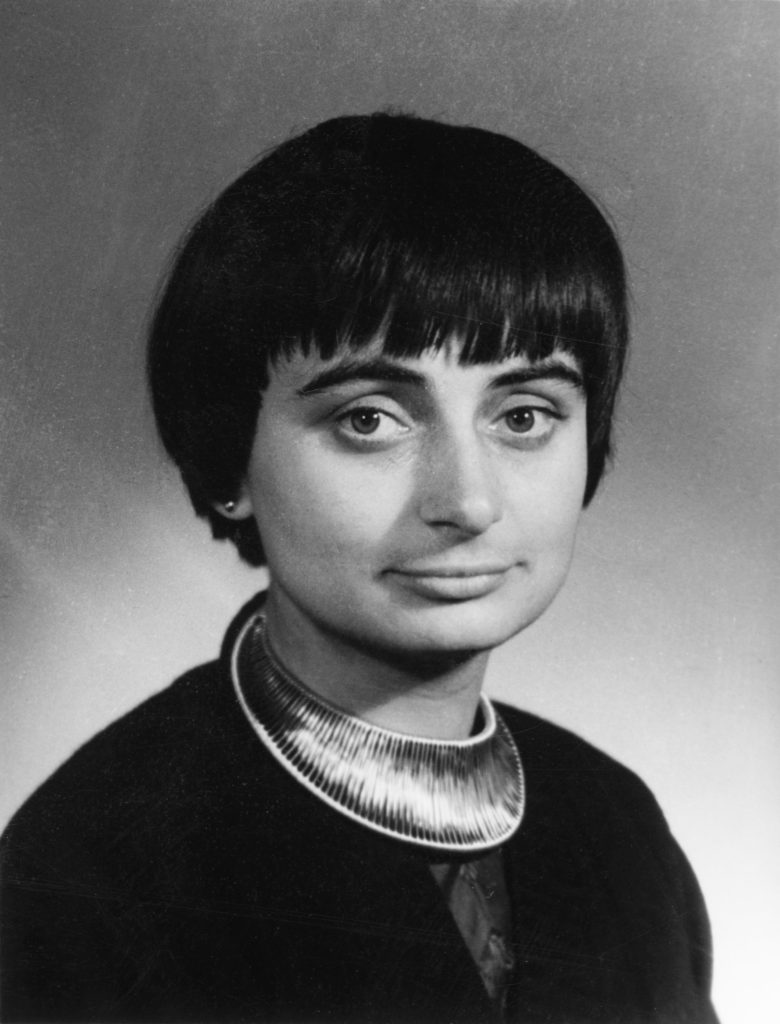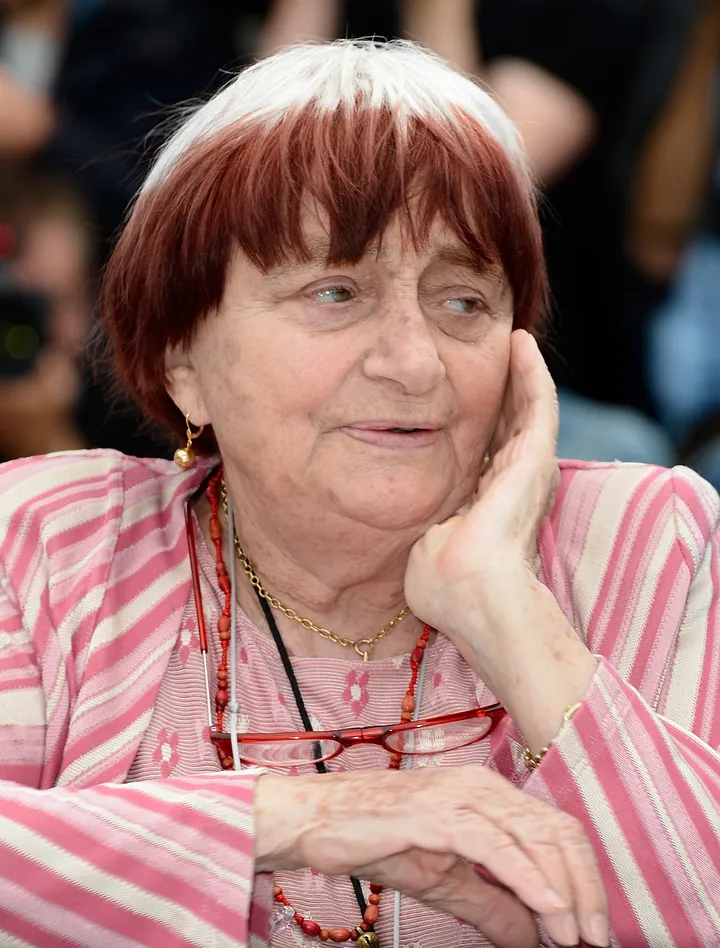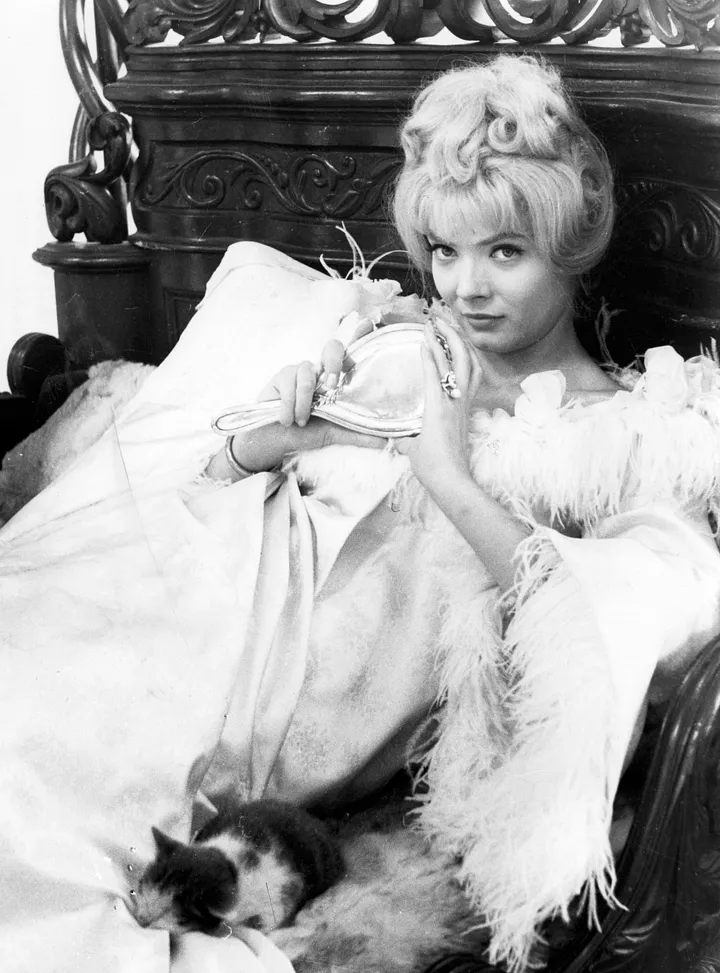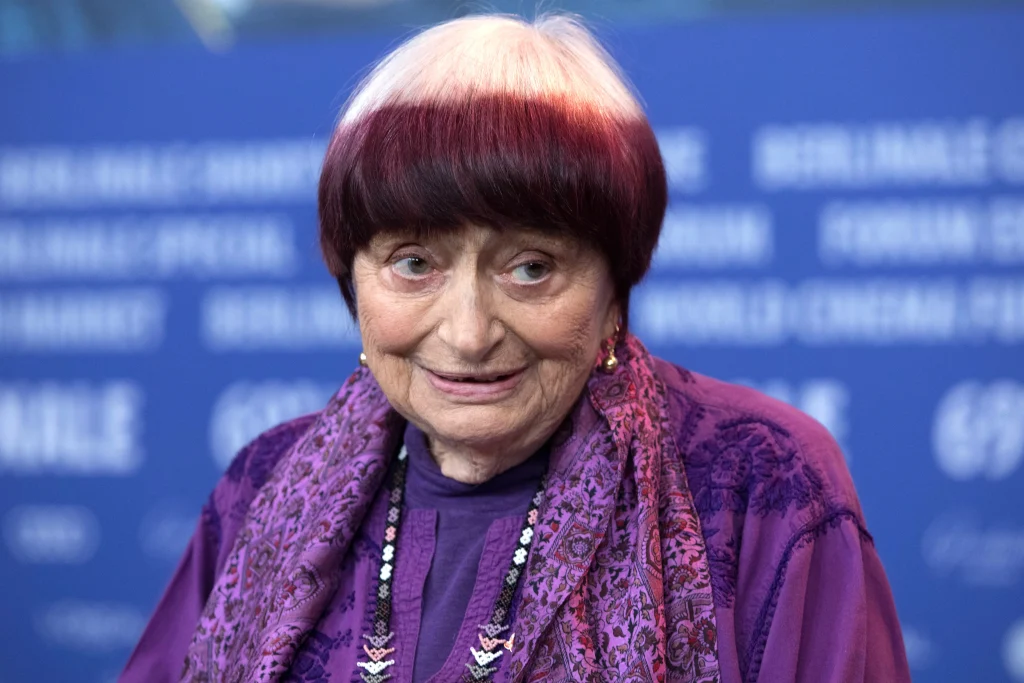Agnès Varda is a legendary figure in the world of filmmaking. She is a French photographer and filmmaker of Belgian descent whose influence may be felt throughout the history of cinema. We go into the depths of her illustrious career, which encompassed feminist and French New Wave cinema, where she skillfully combined identity, memory, and social justice.
Agnès Varda, born Arlette Varda on May 30, 1928, with roots in Belgium, France, and Greece, was a remarkable film director, screenwriter, photographer, and artist.
Early Life and Education of Agnès Varda
Birth and Family Background
Agnès Varda, originally named Arlette Varda, was born in Ixelles, Brussels, Belgium. Her parents were Christiane and Eugène Jean Varda, the latter being an engineer. Her mother hailed from Sète, France, while her father belonged to a family of Greek refugees from Asia Minor in the Ottoman Empire. Agnès was the third of five siblings.
Name Change and Teenage Years
At the age of 18, Varda officially changed her first name to Agnès. During World War II, her family left Belgium in 1940 and settled in Sète, where Agnès spent her teenage years. Interestingly, she lived on a boat with her family during this period and developed a lifelong friendship with sculptor Valentine Schlegel.
Educational Pursuits
Varda’s academic journey included studying art history at the École du Louvre and photography at the École des Beaux-Arts. Subsequently, she worked as a photographer at the Théâtre National Populaire in Paris. Her educational background also involved attending the Lycée et collège Victor-Duruy and earning a bachelor’s degree in literature and psychology from the Sorbonne.
Challenges in Paris
Relocating to Paris proved to be a significant transition for Varda. She described the experience as “truly excruciating,” expressing vivid memories of her arrival in the city, which she found to be “grey, inhumane, [and] sad.” Her initial challenges included difficulties with fellow students and a dissatisfaction with the classes at the Sorbonne, which she deemed “stupid, antiquated, abstract, [and] scandalously unsuited for the lofty needs one had at that age.” Despite these challenges, Agnès Varda persevered in her pursuit of education and artistic endeavors.
Agnès Varda’s Photography Career
Educational Shift
Originally aspiring to be a museum curator and studying art history at the École du Louvre, Agnès Varda redirected her focus and opted for photography, enrolling at the Vaugirard School of Photography.
Early Years in Photography

Embarking on her career as a photographer, Varda initially captured everyday moments like family gatherings and weddings to earn a living. However, she was quick to pursue her passion for more artistic “compositions,” delving into questions of composition, form, and meaning.
Connection to Left Bank Cinema and French New Wave
Agnès Varda emerged as a prominent figure in both the Left Bank Cinema and the French New Wave, showcasing a unique interplay between still photography and cinema. She expressed her approach as, “I take photographs or I make films. Or I put films in the photos, or photos in the films.”
Theatrical Photography and Career Growth
In 1951, Varda’s friend Jean Vilar appointed her as the official photographer for the Théâtre National Populaire, a position she held for ten years. During this time, her reputation flourished, leading to photo-journalist opportunities across Europe. She also worked as a stage photographer for the Theatre Festival of Avignon before joining the Théâtre National Populaire.
Photography Inspiring Films
Varda’s still photography served as a foundation for her cinematic ventures. For her debut film, “La Pointe Courte,” she took photographs that almost served as models for the shots, demonstrating her unique approach to visual storytelling. Even in later years, her films were influenced by her earlier photographic work, with specific images inspiring narrative elements.
Continued Impact
Varda’s dedication to both photography and filmmaking persisted throughout her career. She continued to explore the connection between these two art forms, creating films based on photographs and sharing anecdotes about the origins of her visual ideas.
Gallery Affiliation
In 2010, Varda joined the gallery Nathalie Obadia, showcasing her ongoing commitment to the world of visual arts. Her journey in photography not only shaped her own cinematic path but also left an enduring mark on the evolving landscape of visual storytelling.
Agnès Varda’s Filmmaking Journey
Early Filmmaking Ventures
Agnès Varda’s filmmaking career began before the French New Wave movement, displaying characteristics that later became emblematic of that era. Despite having seen only around 20 films by the age of 25, her curiosity led her to venture into film while working as a photographer.
La Pointe Courte (1954)
Her debut film, “La Pointe Courte” (1954), set in a French fishing town, is considered a stylistic precursor to the French New Wave. Influenced by philosopher Gaston Bachelard, Varda explored the clash of personality traits through objects, merging professional actors with local residents for a documentary aesthetic.
Cléo from 5 to 7 (1961)
“Cléo from 5 to 7” continued Varda’s exploration of the intersection between fiction and documentary. The film follows a pop singer awaiting biopsy results, delving into themes of mortality and self-perception.
Ciné-Tamaris and Independence (1977)
In 1977, Varda established her production company, Ciné-Tamaris, gaining more control over shooting and editing. This move showcased her commitment to independence and artistic autonomy.
One Sings, the Other Doesn’t (1977)
A feminist work, “One Sings, the Other Doesn’t,” produced by Ciné-Tamaris, spans 14 years during the Women’s Movement in 1970s France. The narrative follows two women, Suzanne and Pomme, as they navigate their lives with distinct choices.
Vagabond (1985)
“Vagabond” (1985) tackled feminist themes through the nonlinear storytelling of a young drifter’s death. Varda’s film de-fetishized the female body from the male perspective, showcasing her innovative narrative techniques.
Jacquot de Nantes (1991)
Following her husband Jacques Demy’s death, Varda created “Jacquot de Nantes” (1991), blending elements of recreation and documentary to pay tribute to his life and work.
The Gleaners and I (2000)
In “The Gleaners and I” (2000), a documentary, Varda explored the lives of gleaners in the French countryside, emphasizing the creation of art from recycled materials. The film marked her first use of digital cameras and conveyed a message about finding value in discarded elements.
Faces Places (2017)
Co-directing “Faces Places” (2017) with artist JR, Varda traveled through rural France, creating portraits of people they encountered. The film won the L’Œil d’or award at the Cannes Film Festival, and Varda, at 89, became the oldest person nominated for a competitive Oscar.
Varda by Agnes (2019)
Her final film, “Varda by Agnes” (2019), involved Varda reflecting on her 60-year artistic journey through photography and filmmaking. The film emphasized three key words: inspiration, creation, and sharing, encapsulating her profound love for life’s simple joys.
Innovative Filmmaking Techniques
Varda’s filmmaking style stood out during a time when indoor shooting was more common due to sound technology limitations. Instead, she embraced location shooting, capturing the authenticity of real places. This was a departure from the norm of using constructed sets and painted backdrops in 1950s French cinema.
Unconventional Casting Choices
Breaking norms, Varda opted for non-professional actors in her films, a choice considered unconventional in the French cinema of the 1950s.
Notable Films
Her journey in cinema began with the feature film debut “La Pointe Courte” in 1955. “Cléo from 5 to 7” (1962), “Vagabond” (1985), and “Kung Fu Master” (1988) are among her notable narrative films.
Documentary Contributions
Varda’s impact extended beyond fiction. She made significant contributions to documentary filmmaking with works like “Black Panthers” (1968), “The Gleaners and I” (2000), “The Beaches of Agnès” (2008), and “Faces Places” (2017). Her final film, “Varda by Agnès” (2019), marked the culmination of her illustrious career.
Recognition and Awards
Agnès Varda’s influence on cinema was acknowledged globally. Director Martin Scorsese dubbed her “one of the Gods of Cinema.” She received an Honorary Palme d’Or at the 2015 Cannes Film Festival, making history as the first woman to win the award. Notably, she won a Golden Lion for “Vagabond” at the 1985 Venice Film Festival. In 2017, she became the first female director to win an honorary Oscar.
Agnès Varda’s Style and Influences

Filmmaking Approach
Agnès Varda’s films often feature protagonists from marginalized or rejected segments of society, portraying a documentary-style exploration of their lives. Notably, she directed a short film on the Black Panthers, inspired by the arrest of their leader, Huey Newton, for the killing of a police officer. The film captured demonstrations supporting Newton and the “Free Huey” campaign.
Auteur Theory and Cinécriture
Like many French New Wave directors, Varda embraced auteur theory, developing her unique style by considering the camera as a creative tool, akin to a pen. She coined her filmmaking method as “cinécriture” or “cinematic writing.” Instead of segregating roles like cinematographer and screenwriter, Varda believed in their simultaneous collaboration to enhance the cohesiveness of the film. Her discoveries often emerged during the editing process, emphasizing the importance of images and dialogue in creating motifs.
Photographic Influence
With a background in photography, Varda placed significant importance on still images in her films. These images served symbolic or narrative roles, often creating a dynamic interplay between still and moving visuals. Varda’s meticulous attention to detail meant that every cinematic choice, whether still or in motion, carried implications for the film’s overall message.
Artistic and Literary Influences
Varda drew inspiration from various artistic and literary sources, showcasing a rich tapestry of influences. Surrealism, William Faulkner, Franz Kafka, and Nathalie Sarraute were among the artistic and literary figures that left a mark on her work. These influences contributed to the depth and complexity of her films, adding layers of meaning and nuance.
In summary, Agnès Varda’s filmmaking style, rooted in auteur theory and cinécriture, coupled with her keen attention to still images and diverse artistic influences, created a unique cinematic language. Her approach transformed filmmaking into a dynamic and collaborative process, capturing the intricacies of human experiences with depth and sensitivity.
Agnès Varda’s Role in the French New Wave and Left Bank Cinema
Agnès Varda’s cinematic contributions intersect with the French New Wave, but her distinct style aligns more closely with the Left Bank Cinema movement. This association stems from her literary influences and the experimental nature of her work, predating the New Wave.
Left Bank Cinema vs. Cahiers du Cinéma
Varda’s films find a place within the Left Bank Cinema movement, alongside filmmakers like Resnais, Chris Marker, Marguerite Duras, Alain Robbe-Grillet, Jean Cayrol, and Henri Colpi. This faction within the New Wave exhibited a more experimental style compared to the Cahiers du Cinéma group. However, this distinction is ironic given that the New Wave itself was considered experimental in its departure from traditional filmmaking norms.
Connection to Nouveau Roman Movement
Left Bank Cinema, closely tied to the nouveau roman movement in literature, shared common traits among its members. These included a background in documentary filmmaking, left-wing political leanings, and a deep interest in experimental approaches to filmmaking, treating film as an art form. Varda, along with her contemporaries, blended social motivation from documentary filmmaking with avant-garde experimentation.
Collaboration and Experimentation
Members of the Left Bank Cinema often collaborated with each other, fostering a sense of collective experimentation. Agnès Varda, resisting conventional norms of representation and production, contributed to shaping a mode of filmmaking that defied traditional boundaries.
Legacy of Resistance and Innovation
Agnès Varda’s involvement in the Left Bank Cinema not only showcases her resistance to established norms but also emphasizes her commitment to pushing the boundaries of cinematic expression. Her films became a fusion of socially motivated documentary approaches and avant-garde experimentation, leaving an enduring impact on the evolution of cinematic storytelling.
Agnès Varda as a Feminist Filmmaker
Feminist Themes in Varda’s Work:
Agnès Varda’s filmmaking is often acknowledged as feminist due to her consistent use of female protagonists and her deliberate crafting of a female cinematic voice. Her work delves into women’s experiences, making her a notable figure in feminist cinema.
Personal Approach to Feminism
While Varda did not identify as a feminist theoretician, she approached her craft, encompassing photography, filmmaking, and her life, on her own terms. She expressed, “I did all that—my photos, my craft, my film, my life—on my terms, my own terms, and not to do it like a man.” Despite not aligning with strict feminist agendas, she explored women’s issues thematically in her work without conforming to conventional or masculine filmmaking norms.
Unconventional and Bold Femininity
Agnès Varda’s approach to feminism was characterized by a lack of adherence to predefined norms. She didn’t actively engage in the feminist movement’s strict agendas but rather embraced her femininity with distinct boldness. This unconventional stance contributed to her unique voice in cinema and solidified her significance in the realm of feminist filmmaking.
Role as a Professor and Feminist Icon
Beyond her filmmaking, Varda served as a Professor of Film at The European Graduate School, contributing to the education and mentorship of future filmmakers. Her importance is highlighted by scholars like Bénézet, who argue for Varda’s role as “a woman of singularity” (au feminin singulier) and consider her of utmost importance in film history.
Agnès Varda’s Personal Life and Passing
Meeting Jacques Demy and Family Life
In 1958, at a short film festival in Tours, Agnès Varda met Jacques Demy, a fellow French director who would become her future husband. They began living together in 1959 and were married from 1962 until Demy’s death in 1990. Varda had two children: Rosalie Varda, from a previous relationship with actor Antoine Bourseiller, and Mathieu Demy, her son with Jacques Demy. Demy legally adopted Rosalie Varda, fostering a close family bond. Mother and daughter collaborated on the Oscar-nominated documentary “Faces Places.”
Activism and Personal Choices

In 1971, Varda was among the 343 women who signed the Manifesto of the 343, publicly admitting to having had an abortion when it was illegal in France and advocating for its legalization. She also attended the funeral of her friend Jim Morrison in 1971.
Family Connections and “Uncle Yanco”
Varda’s cousin, painter Jean Varda, was introduced to her in 1967 in California. The encounter inspired her short documentary “Uncle Yanco,” where she affectionately portrayed their relationship.
Passing and Funeral
Agnès Varda succumbed to cancer on March 29, 2019, in Paris at the age of 90. She was laid to rest at Montparnasse Cemetery on April 2. Her funeral was attended by notable figures such as Catherine Deneuve, Julie Gayet, Jean-Pierre Léaud, Jane Birkin, and Sandrine Bonnaire. Mourners left flowers and potatoes outside her residence on rue Daguerre, paying tribute to her love for the vegetable.
Tributes and Legacy
The filmmaking community passionately mourned Varda’s passing. Martin Scorsese praised her unique contributions to cinema, emphasizing her remarkable body of work. Filmmakers like Barry Jenkins, Ava DuVernay, Guillermo del Toro, the Safdie brothers, Edgar Wright, JR, and Madonna expressed their gratitude for Varda’s films, passion, and light. Jean-Luc Godard sent a special tribute to Varda’s daughter, Rosalie, indicating his deep appreciation for Agnès and her cinematic legacy.
In conclusion, Agnès Varda’s personal and professional journey, marked by love, activism, and artistic brilliance, left an indelible imprint on the world of cinema. Her passing prompted an outpouring of heartfelt tributes from across the globe, underscoring the impact she had on the art form and the lives she touched.
Awards and Recognitions: Celebrating Agnès Varda’s Achievements
Cannes and Venice Film Festival Participation
Agnès Varda’s contributions to cinema were acknowledged through her participation as a jury member at prestigious film festivals. In 2005, she served on the jury at the Cannes Film Festival, and in 1983, she was a member of the jury at the Venice Film Festival.
French Academy Prize and National Order of Merit
In 2002, Varda received the French Academy prize, René Clair Award. Her dedication to cinema was further recognized in 2007 when she was appointed a Grand Officer of the National Order of Merit of France. Subsequently, in 2013, she was promoted to the Grand Cross of the National Order of Merit.
Legion of Honour and Honorary Degrees
Agnès Varda’s significant impact on the film industry led to her being named Commandeur de la Légion d’honneur in 2009 and later, in 2017, she was promoted to Grand officier of the Legion of Honour. In 2010, she was honored with an honorary degree from the University of Liège, Belgium.
Lifetime Achievement Awards and Recognitions
Throughout her illustrious career, Varda received several lifetime achievement awards. Notable among these was the Directors’ Fortnight’s 8th Carosse d’Or award in 2010 at the Cannes Film Festival. In 2014, she received the Leopard of Honour at the Locarno Film Festival, followed by the honorary Lifetime Achievement Award from the European Film Academy.
Prestigious Palme d’Or and Academy Honorary Award
Varda’s groundbreaking achievements culminated in receiving the prestigious Palme d’Or in 2015, making her the first woman to ever receive this honorary award. In 2017, she achieved another historic milestone by becoming the first female director to be honored with an Academy Honorary Award, recognizing her exceptional contributions to cinema.
Golden Lion and César Awards
Varda’s documentary-style feature film “Vagabond” earned her the Golden Lion at the 1985 Venice International Film Festival. In 2009, “The Beaches of Agnès” won the Best Documentary Film award at the 34th César Awards.
Recognition at the Oscars and Beyond
At the time of her passing, Varda held the distinction of being the oldest person ever nominated for an Academy Honorary Award. In 2019, the BBC poll named her the most-named director on the list of the 100 best films by women directors. This recognition reflected her influence on global cinema, with six different films, including “Cléo from 5 to 7,” being highlighted by film experts worldwide.
Celebrating Agnès Varda: A Journey Through Retrospectives
Harvard Film Archive Series
Agnès Varda’s cinematic legacy was honored with a retrospective series at the Harvard Film Archive. This series provided audiences with a comprehensive look at her body of work, allowing them to appreciate the evolution of her unique storytelling and filmmaking style.
Bildmuseet, Umeå University, Sweden
A retrospective exhibition featuring Agnès Varda’s work took place at Bildmuseet, Umeå University, Sweden, from June 2, 2013, to August 18, 2013. This showcase allowed visitors to immerse themselves in the artistic journey of a filmmaker whose impact extended far beyond the screen.
Lincoln Center, New York
The Lincoln Center in New York hosted “Varda: A Retrospective” from December 20, 2019, to January 6, 2020. This exhibition served as a testament to Varda’s influence on cinema, inviting audiences to revisit her iconic films and explore the thematic richness embedded in her storytelling.
Galerie Nathalie Obadia, Paris
A retrospective titled “Valentine Schlegel par Agnès Varda” was presented at Galerie Nathalie Obadia in Paris from November 5, 2020, to December 19, 2020. This exhibition focused on Varda’s artistic collaboration with Valentine Schlegel, providing insights into their creative partnership.
Cinémathèque Française, Paris
The Cinémathèque Française in Paris paid tribute to Agnès Varda with the retrospective exhibit “Viva Varda!” from October 11, 2023, to January 28, 2024. This retrospective offered a comprehensive exploration of Varda’s cinematic journey, celebrating her contributions to the world of filmmaking.
These retrospectives not only showcased Agnès Varda’s diverse body of work but also highlighted her impact on the global cinematic landscape. Through exhibitions and series, audiences had the opportunity to appreciate the depth of her storytelling, innovative approach to filmmaking, and the lasting imprint she left on the world of cinema.
Read another celebrity achievements: Alyssa Milano Net Worth 2024: An In-Depth Exploration

